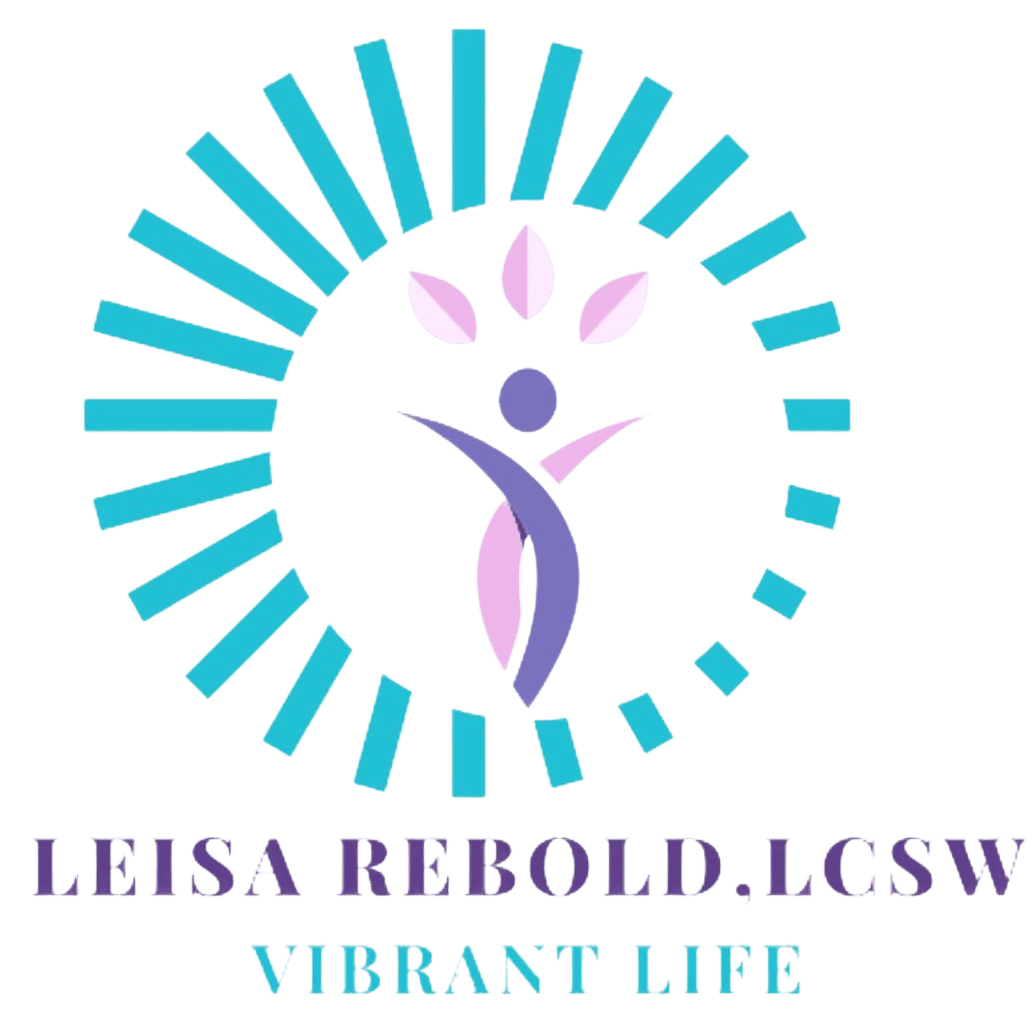Specialities
My therapeutic work is focused on but not limited to the following:
Anxiety
Anxiety can present itself in a variety of unique ways. At its foundation, anxiety is persistent worrying, which becomes detrimental to a person’s functioning. Anxiety can manifest itself through emotions, bodily sensations, and thoughts.
Anxiety might look like the following symptoms:
- Rapid heart rate
- Tension
Fatigue
- Brain Fog
Avoidance of that which causes anxiety
Stomach upset or other GI issues
Trembling or shaking
Sometimes, anxiety can look like depression symptoms
Tight chest
Sense of panic
Anxiety is a common reality for many. Therapy is a great way to manage anxiety symptoms with the support of a professional. I use a variety of approaches while working with anxiety, including Cognitive Behavioral Therapy (CBT), Mindfulness and strengths-based approaches.
Depression
While we all experience periods of sadness, feeling weighted down, and fatigued, some experience these symptoms regularly. Depression is a mood disorder that can severely disrupt functioning and a sense of well-being. Therapy is an evidence-based approach used to manage or eliminate depression, with or without the help of medication.
Depression might look like the following symptoms:
Depression
While we all experience periods of sadness, feeling weighted down, and fatigued, some experience these symptoms regularly. Depression is a mood disorder that can severely disrupt functioning and a sense of well-being. Therapy is an evidence-based approach used to manage or eliminate depression, with or without the help of medication.
Depression might look like the following symptoms:
Tearfulness
Feeling hopeless
Disinterest in once enjoyable activities
Fluctuations in appetite or weight
Anxiety symptoms
Indecisiveness
Suicidal thoughts or a preoccupation with death
Fatigue
Tight chest
Sleeping problems
Tearfulness
Feeling hopeless
Disinterest in once enjoyable activities
Fluctuations in appetite or weight
Anxiety symptoms
Indecisiveness
Suicidal thoughts or a preoccupation with death
Fatigue
Tight chest
Sleeping problems
Working together, we come up with a plan curated for your unique depression needs. We will work collaboratively to improve behaviors that keep you in the depression loop, identify and work through negative thought patterns, and feel emotions that are waiting to be felt. Sometimes, suppressing our feelings can perpetuate depressive symptoms. While working with depression, I use Cognitive Behavioral Therapy (CBT), Mindfulness-Based Cognitive Therapy, as well as a person-centered and strengths-based approaches.
Life Transitions
Our lives are marked by the ever-flowing cycles of change. Even when we “cannot wait” for newness; whether that be a new baby, a graduation, or moving to a new city, we often still grieve for what was. We miss the life we had before the family expanded or we experience a wave of sadness as we wave goodbye to our old neighbors.
Sometimes, life transitions are not welcome. Instead of the life you envisioned and relied on, everything seems to be spinning out of control. Your spouse cheated, and now you are in the midst of a draining divorce. You were just recently diagnosed with cancer, and your life has been turned upside down. Nothing is the same anymore. Perhaps you are now caring for a parent with dementia, while raising your own children. Maybe you retired at the urging of your family, but dreaded the retirement and now you are lost as well as resentful.
Life transitions provide us with excitement, heartbreak, and often wisdom. I work with clients who are facing difficult or changing seasons. You can expect me to draw from an eclectic approach, incorporating various treatments such as Cognitive Behavioral Therapy, Mindfulness, and strengths-based approaches.
Self-Care
Self-care is our way of nourishing our minds, bodies, and souls in a way that honors our own needs. It is our fuel so we can work effectively, take care of others, and reach our goals. Caring for oneself is an individualized and personalized concept, so it looks different person to person.
For some, self-care might mean saying no to an event because going will mean feeling drained for the rest of the week. It might mean getting into the practice of tidying up your home for 15 minutes at the end of the day, because you cannot function in clutter. Self-care might also mean ensuring you see other people at least once or twice a week, because being around others fills your cup.
Together, you and I will become curious and conscious of what self-care practices will most benefit you and your life. We will talk about a plan to begin your self-care routine and celebrate when you do take compassionate care of yourself.
Self-Care
Self-care is our way of nourishing our minds, bodies, and souls in a way that honors our own needs. It is our fuel so we can work effectively, take care of others, and reach our goals. Caring for oneself is an individualized and personalized concept, so it looks different person to person.
For some, self-care might mean saying no to an event because going will mean feeling drained for the rest of the week. It might mean getting into the practice of tidying up your home for 15 minutes at the end of the day, because you cannot function in clutter. Self-care might also mean ensuring you see other people at least once or twice a week, because being around others fills your cup.
Together, you and I will become curious and conscious of what self-care practices will most benefit you and your life. We will talk about a plan to begin your self-care routine and celebrate when you do take compassionate care of yourself.
Coping Skills
There is no doubt that life can be difficult. Coping skills are what we rely on to distract, self-soothe, and calm our nervous systems. Some skills suggested by a therapist might be new to you, while others are old and familiar. Some coping skills may be easy and second-nature, while others require a bit of practice. Coping skills look different for each client, and what works for one person may not work for you. What is important is that you are open to trying skills so you are prepared for when difficulty arises.
Below is a list of common coping skills. This list is not exhaustive, and only touches on a few available coping skills:
Below is a list of common coping skills. This list is not exhaustive, and only touches on a few available coping skills:
Breathing
Meditation
- Drawing
Reading
Making/Creating something
Breathing
Meditation
- Drawing
Reading
Making/Creating something
Taking a shower
Reading something enjoyable
Talking with a friend
Movement
Taking a shower
Reading something enjoyable
Listening to music
Talking with a friend
Movement
We will work together to discover what skills work best for you and hone those skills that need to be tuned up.
We will work together to discover what skills work best for you and hone those skills that need to be tuned up.
Self-Esteem
Many people do not feel “good enough”; they perceive themselves as “less than” and endure painful suffering from this belief. Much relational dysfunction can stem from this belief, and you might spend years unconsciously trying to prove your worth to others. Healing can awaken once you start to notice your unique strengths, gifts, and worth. Together, we work on those thoughts and beliefs that are telling you lies about your worth and value in order to unlock new found freedom and ease.
Self-Esteem
Many people do not feel “good enough”; they perceive themselves as “less than” and endure painful suffering from this belief. Much relational dysfunction can stem from this belief, and you might spend years unconsciously trying to prove your worth to others. Healing can awaken once you start to notice your unique strengths, gifts, and worth. Together, we work on those thoughts and beliefs that are telling you lies about your worth and value in order to unlock new found freedom and ease.
CBT and the relationship between Thinking, Feeling & Acting
CBT and the relationship between Thinking, Feeling & Acting
CBT and the relationship between Thinking, Feeling & Acting
Cognitive behavioral therapy (CBT) helps us become more aware of our thoughts and how they are keeping us stuck in unhealthy patterns of thinking, feeling, and acting. The way we perceive the world comes from what we learned as a child, our view of the culture around us, the stories we tell ourselves, and the patterns we become stuck in. Through CBT, you learn strategies to change the way your mind translates situations and work through old traumas and beliefs that shaped your inaccurate and unhelpful thoughts that cause distress and hold you back from reaching your life goals. It can sound confusing but actually applying the skills of CBT is a lot easier than trying to understand all the jargon used to explain it. CPT does require a commitment to daily practice to reap the amazing lifelong benefits.
How Does Mindfulness
Help?
How Does Mindfulness Help?
A mindfulness practice or meditation, can:
Increase positive feelings and decrease anxiety, depression, and somatic distress.
Help you step back and observe your thoughts without judgment.
Allow you to view your suffering and struggles more compassionately and objectively.
Enable you to remain present in your current moment and experience.
Train attention and awareness in order foster calmness, clarity and concentration










